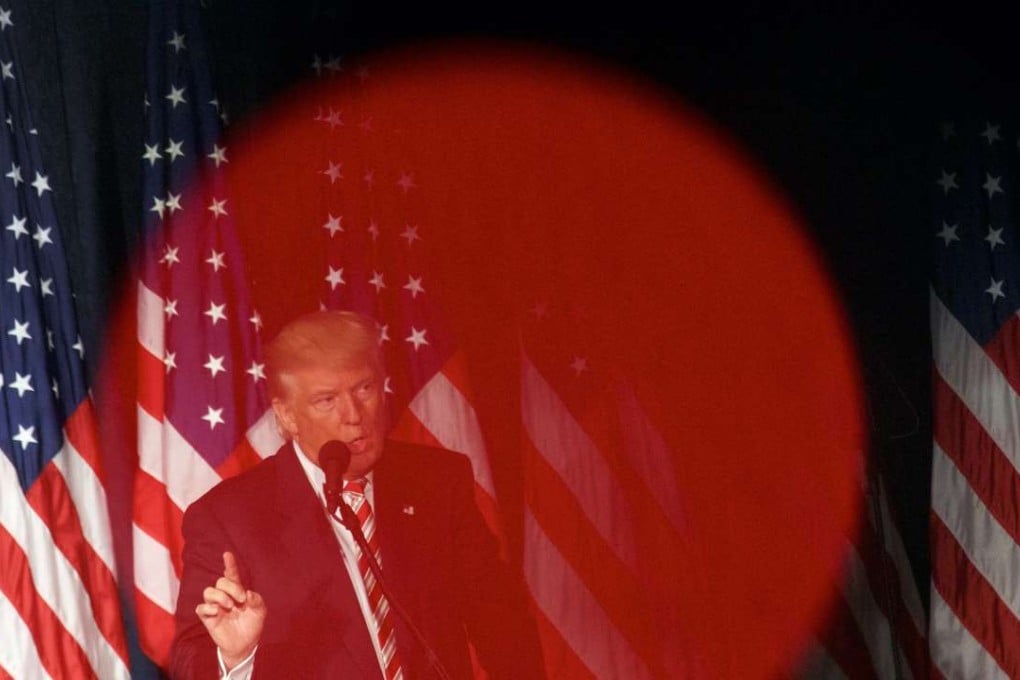How Trump’s White House bid has put Japan on the defensive

Outside the site of a new proposed US military base at Henoko on the southern Japanese island of Okinawa, three members of the American anti-war campaign group Veterans for Peace are singing songs while surrounded by a cordon of police to show solidarity with local people demonstrating against the facility. Tarak Kauff, Ken Mayers and Michael Hanes, who were deployed in Iraq and Afghanistan, are part of a delegation of six visiting the island, three of whom are former US Marines previously stationed on Okinawa.
Clinton and Trump go head to head
Local opposition to the presence of US forces on Okinawa, home to numerous American military bases, has been growing stronger again recently following a series of crimes by military personnel and base workers, including the alleged rape-murder of an Okinawan woman in April.

However, it is the threat from another American, presidential candidate Donald Trump, that has some in the Japanese government and military concerned about the future of the bases and the US-Japan Security Alliance.
‘They should be paying us’: Trump calls for allies to pay for hosting US bases, but it’s already happening
Trump has repeatedly attacked Japan during his campaign, criticising it over trade issues, questioning the validity of its alliance with the US and accusing Tokyo of not paying enough for the protection it receives.
“If Japan gets attacked, we have to immediately go to their aid … if we get attacked, Japan doesn’t have to help us. That’s a fair deal?” Trump asked supporters at a rally in Iowa.

Trump is running neck and neck with Hillary Clinton in many recent polls, despite his faltering debate performance, and even leading in some key battleground states, such as Ohio. Japan’s policymakers can no longer dismiss the possibility of a Trump presidency out of hand.